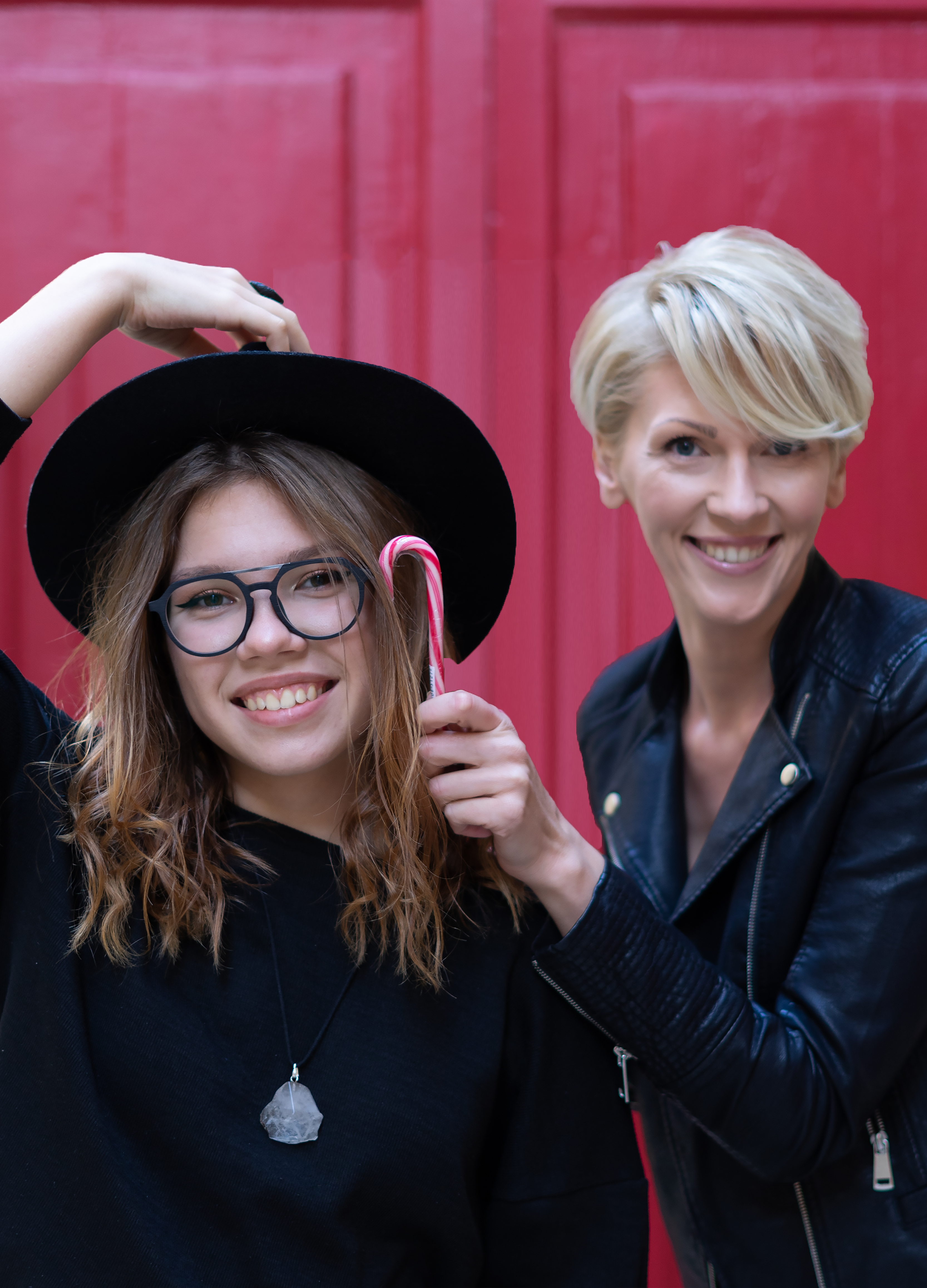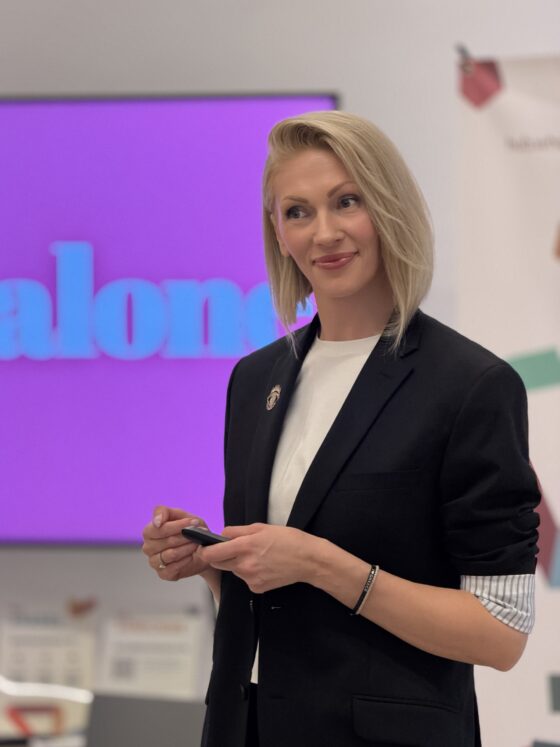Owning the Mother-Daughter Competition: When Your Teen Thinks She Knows It All

As a mother of a teenage daughter, I’ve often found myself in a delicate dance of wanting to guide her while also giving her the space to discover her own identity. One of the more challenging dynamics that has appeared in this phase of motherhood is a Mother-Daughter Competition, when my daughter begins to push that she “knows better”, whether it’s facts, life lessons, or even emotional wisdom. It can feel like we’re in some sort of competition, with her trying to prove she has all the answers, while I’m left questioning whether I should challenge her, support her, or step back entirely.
I know this feeling is not unique to me. In fact, it’s a normal part of growing up. Teenagers and young adults are in the process of forming their own sense of self, testing boundaries, and striving for independence. But how should I, as a mother, respond when my daughter tries to convince me that she knows more than I do? Should I downplay my own knowledge, pretending I don’t know as much as I do, in order to avoid conflict? Or should I assert my experience and gently remind her that there’s always more to learn, even as adults?
I’ve spent a lot of time thinking about mother-daughter competition, and I’ve come to realise that there’s no perfect answer. But understanding the psychology behind this phase of development, along with finding the right balance, can make all the difference in our relationship and her growth.
The Psychology of Why Teens Often Seem so Confident in Their Knowledge
During adolescence, a major shift occurs in the brain. According to developmental psychologists, the prefrontal cortex, which is responsible for decision-making, impulse control, and rational thinking, isn’t fully developed until the early 20s. This explains why teens often seem so confident in their knowledge, but may lack the depth of experience and wisdom that comes with age.
At the same time, my daughter, and likely yours, is striving for autonomy and individuality. Part of this process involves testing my authority and knowledge, particularly in areas she perceives as central to her life. This can feel like a competition at times, but it’s important to recognise that it’s a natural part of her maturation process.
Psychologist Dr. Laurence Steinberg explains that adolescents need to differentiate themselves from their parents to develop a strong sense of self. While this might feel personal at times, it’s simply my daughter’s way of finding her own place in the world.
For me, this is frustrating. After all, some of the things my daughter is discovering are not new to me at all. But rather than seeing it as a challenge, I try to view it as part of her growing process, a process where she needs to feel knowledgeable and capable, even if it sometimes means contradicting what I know.
Should I downplay my own knowledge, pretending I don’t know as much as I do, in order to boost her self-esteem? Or should I introduce my experience and gently remind her that there’s always more to learn, even as adults?
– Zaneta Intaite
Should You Challenge or Support? Finding the Right Balance in Mother-Daughter Competition
As a mother, it’s natural to want to protect and guide my child. But I also recognise that teens don’t always respond well to being told that their opinions are wrong, even if they’re misinformed. In these moments, it’s not about “winning” the argument, but rather fostering a respectful, healthy exchange of ideas.
Here are some approaches I’ve found helpful in navigating this balance:
1. Be Open but Thoughtful: “I See Your Point, But Let’s Explore This Together”
When my daughter presents something she’s recently learned, whether it’s about a new scientific discovery or a social issue, I feel instead of acknowledging her enthusiasm in discovering I’m often brushing it off by saying, “That’s old news,”, when I should say, “I’m so glad you’re learning about that! I read about something similar a while ago, and I’d love to see how it’s been developed further.”
It’s important to learn how to remain respectful of her perspective while also subtly sharing my own knowledge. My task is to encourages curiosity rather than shutting down the conversation and helps create a more open dialogue rather than boost mother-daughter competition.
2. Use Socratic Questioning to Foster Critical Thinking
One tool I’ve found particularly effective is asking thought-provoking questions, which encourage my daughter to think critically about what she’s learning. Instead of outright challenging her, I try to ask:
- “What sources are you relying on, and how do you think they arrived at this conclusion?”
- “What do you think might be the opposite perspective on this?”
This technique, known as Socratic questioning, helps her reflect on her own ideas and develop a deeper understanding of the information. It encourages a process of thinking rather than simply memorising or regurgitating facts.
3. Be Honest and Proud About Your Own Learning Journey
I’ve come to realise that one of the most powerful ways to teach my daughter is by being honest about my own learning experiences. Learning doesn’t stop after a certain age, and by sharing that with her, I can help her understand that intellectual growth is a lifelong process.
For example, if she introduces something that I’m already familiar with, instead of pretending I don’t know it, I’ll say something like, “That’s something I’ve read about, but from a different perspective. Let’s look at both sides and see how they connect.” This shows her that I’m still learning, too, and that wisdom and knowledge come from being open-minded, not from having all the answers.
4. Praise Their Efforts, Not Just Their Knowledge
When I notice my daughter working hard to prove her knowledge, I make a point to praise her effort rather than just the correctness of her conclusions. If she gets something wrong, instead of focusing on the mistake, I’ll say, “I love how passionate you are about learning this. Keep exploring, you’re building the foundation for even deeper knowledge.”
This helps shift the focus from being “right” to being engaged in the process of learning. It encourages her to stay curious and not be discouraged by mistakes.

Openness vs. Challenging: What’s More Harmful?
The key to navigating the mother-daughter competition is not to think of it as a battle. In fact, openness can do far more good than harm. According to Dr. Deborah Gilboa, a family physician and parenting expert, the best way to engage with teens is to encourage “active listening and validating” their feelings. Teens often test their independence in ways that seem combative, but they’re looking for validation from their parents that they’re capable of thinking for themselves.
However, this doesn’t mean you should always sugarcoat things. Challenge, but with love and respect. If your daughter’s perspective is misguided, it’s okay to challenge her assumptions. The key is to do so respectfully, encouraging her to think critically and broadening her worldview, rather than simply telling her she’s wrong.
This approach builds intellectual confidence and respect, and it strengthens your relationship by positioning you not as their best friend, on the same developmental level as them, but as their parent and mentor.
In those moments of mother-daughter competition, when knowledge and independence take center stage, the most important tool I can offer is respect. By recognising that my daughter’s desire to prove herself is a natural and necessary part of growing up, I can support her in a way that nurtures both her intelligence and our relationship.
By challenging her ideas when appropriate, and offering thoughtful insights, I help her grow not only in knowledge, but also in wisdom and self-awareness. This approach to the mother-daughter competition allows us both to thrive, she as an independent thinker, and me as a mother who continues to learn right alongside her.
By embracing this balance of support, challenge, and respect, I know I’m helping my daughter become the strong, confident, and thoughtful woman she is meant to be, while keeping our connection strong and ever-evolving.










